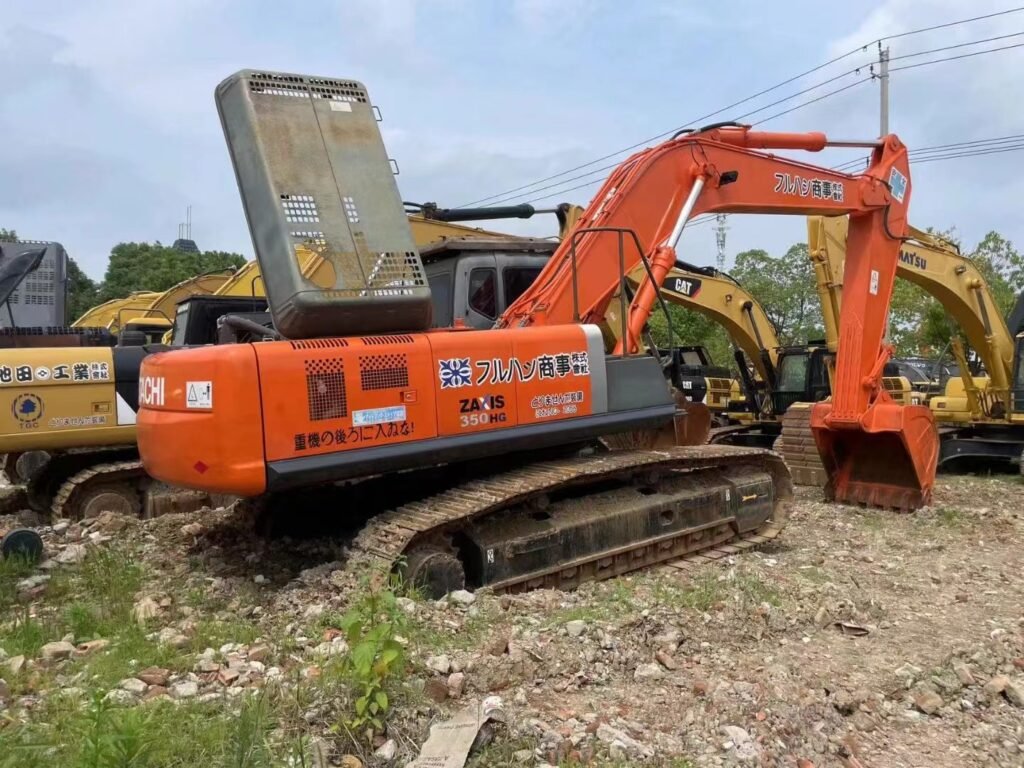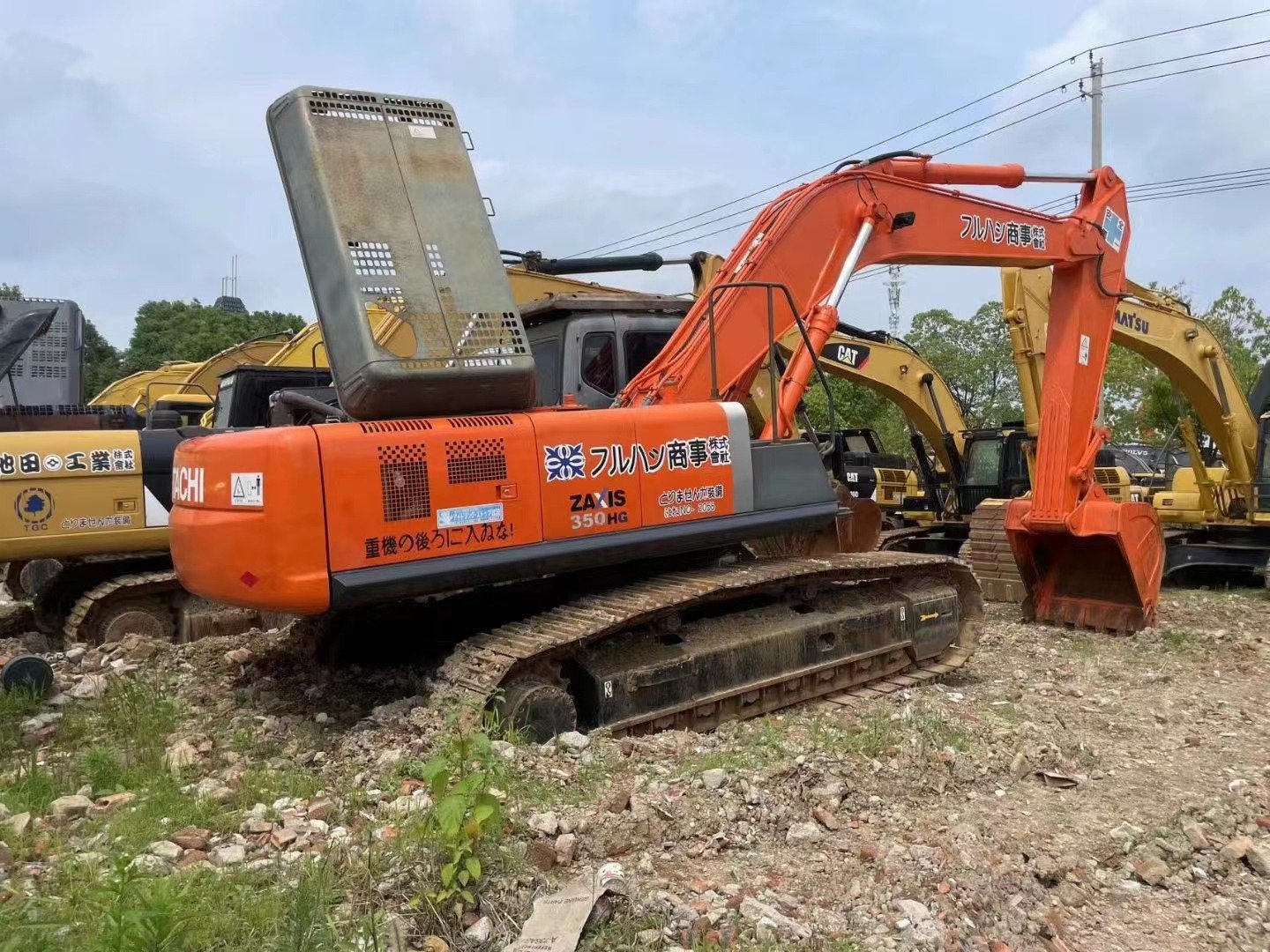I. Introduction
A. Importance of Second-Hand Excavators
Second-hand excavators play a significant role in many construction projects, especially when budgets are constrained. Compared to new equipment, second-hand excavators offer similar performance at a lower price, making them an ideal choice for many small businesses and contractors. However, the maintenance and care of second-hand excavators are crucial to ensure they operate efficiently over the long term.
B. Necessity of Maintenance and Care
Regular maintenance and care not only extend the lifespan of the equipment but also enhance work efficiency and reduce the likelihood of breakdowns. Through effective maintenance, businesses can minimize unexpected downtime, ensuring project timelines are met and reducing repair costs.
II. Daily Maintenance
A. Visual Inspection
Conducting regular visual inspections of the excavator is an essential part of daily maintenance. During inspections, operators should look for visible damage, cracks, or rust on the machine’s exterior, allowing for early detection of potential issues that could affect performance.
B. Fluid Level Checks
It’s vital to ensure that engine oil, hydraulic oil, coolant, and fuel levels are within normal ranges. Regularly checking and topping off these fluids helps maintain the proper functioning of the engine and hydraulic systems, ensuring optimal performance.
C. Cleaning Procedures
Keeping the equipment clean can effectively prevent the accumulation of dirt and debris, which can hinder operational efficiency and lead to malfunctions. Regularly cleaning both the exterior and interior of the excavator, particularly around the hydraulic system and engine area, is essential.
III. Regular Maintenance
A. Changing Hydraulic Oil and Engine Oil
Regularly changing hydraulic oil and engine oil is crucial, typically recommended every 200 hours or quarterly. Maintaining clean and appropriate oil quality helps extend the lifespan of the hydraulic system and engine.
B. Checking and Replacing Filters
Regular checks and replacements of air and oil filters are also key maintenance tasks. Ensuring effective filtration prevents contaminants from entering the engine and hydraulic systems, thereby enhancing operational efficiency.
C. Lubrication System Maintenance
Regularly lubricating the excavator’s lubrication points is essential for optimal functioning. Proper lubrication of mechanical components reduces wear and extends the equipment’s lifespan.

IV. Mechanical Component Checks
A. Chain and Track Inspection
Chains and tracks are critical components of the excavator. Regularly checking for wear and tear is necessary, and if significant wear is found, adjustments or replacements should be made to maintain stability and safety.
B. Hydraulic System Inspection
The hydraulic system is the heart of the excavator. Periodic checks of hoses, joints, and cylinders are essential to ensure there are no leaks. Monitoring the cleanliness and pressure of hydraulic oil is also important for system performance.
C. Electrical System Inspection
The proper functioning of the electrical system is vital for excavator operation. Regularly inspecting the battery, wiring, and electrical components ensures there are no corrosion or connectivity issues that could lead to electrical failures.
V. Operator Training
A. Importance of Proper Operation
Training for operators is crucial for the safe use and maintenance of the equipment. Well-trained operators better understand the equipment’s characteristics, reducing human errors and ensuring smooth operation.
B. Safety Operating Procedures
Following safety operating procedures minimizes the risk of accidents. Training should cover operational workflows, safety precautions, and emergency response methods to ensure operators adhere to best practices.
VI. Seasonal Maintenance
A. Winter Maintenance
During cold winter months, special attention should be given to checking and replacing antifreeze to prevent fluids from freezing and causing damage. Additionally, checking battery performance is essential to ensure normal operation in low temperatures.
B. Summer Maintenance
In high summer temperatures, checking the effectiveness of the cooling system, including coolant levels and pump operation, is vital to prevent engine overheating. Keeping the radiator clean is also important for effective heat dissipation.

VII. Recording and Management
A. Maintenance Records
Establishing detailed maintenance and care records helps businesses manage their equipment more effectively. By documenting each maintenance activity and its timing, companies can track equipment usage and ensure timely care.
B. Fault Management
Recording equipment faults and repair incidents aids in performance analysis and identifying common failure causes, allowing for improved maintenance planning and enhanced overall reliability.
VIII. Conclusion
A. Benefits of Effective Maintenance
Effective maintenance is crucial for extending equipment lifespan and reducing operational costs. By performing regular care and appropriate management, businesses can ensure that second-hand excavators consistently deliver high performance.
B. Practical Recommendations
In maintaining and caring for second-hand excavators, businesses should pay attention to the following:
- Conduct comprehensive inspections regularly to identify issues early.
- Maintain thorough records of maintenance and operations to ensure information completeness.
- Focus on operator training to enhance the safety and effectiveness of equipment operations.



